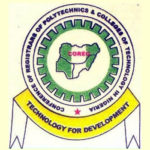HERBERT Macaulay: An Ibadan man in Lagos Politics is the title of the book authored by Bolaji Egbetokun. It is an account of the political career of Herbert Samuel Heelas Macaulay, one of Nigeria’s foremost nationalists and politicians. The book, according to the author, is the outcome of a Master’s degree dissertation completed in 2015. In other words, it is a product of conscious academic research. This sets it apart from some other works in terms of the methodology and contents. The 149-page book gives some instructive insights into the life of one of the icons of Nigerian nationalism.
The first two chapters of the book may be less fascinating to the cursory readers, but the academically inclined reader will find them useful. This is because the first chapter provides a general background to the work while the second chapter contains a review of relevant literatures. This is the accepted format for writing academic reports, theses and dissertations, but which, in some cases, is not necessary for books meant for general readership.
The third chapter of the book focuses on the birth and early life of Herbert Macaulay. According to the author, Macaulay was born in Lagos on November 14, 1864. The book traces Macaulay’s ancestry to Yoruba hinterland, and, more precisely, Ibadan. According to available information, his grand-parents, Ojo Oriare and Kilangbe, were enslaved and later set free by the British anti-slavery squadron. They settled for a while in Sierra Leone, where they gave birth to Macaulay’s father, Thomas Babington Macaulay, in 1826. Macaulay himself was born to Babington Macaulay and Abigail, the second daughter of Right Reverend Samuel Ajayi Crowther. The chapter further narrates Macaulay’s early life up to the formative period of his political career.
Macaulay’s contributions to Nigerian nationalism forms the main focus of the fourth chapter of this book. The author relates this to the rise of Nigerian National Democratic Party (NNDP), founded by Macaulay in 1923. From that year, Macaulay became a thorn in the flesh of the colonial government in Nigeria. The author notes that Macaulay participated actively in anti-colonial struggle in Nigeria, up to the time of his death in May 1946. It is instructive that Macaulay inspired other young men like Nnamdi Azikiwe, Obafemi Awolowo, and a host of others to pursue and sustain the struggle for Nigeria’s emancipation from colonial rule in their respective ways until independence was achieved in 1960.
From her findings, the author claims that Macaulay was a native of Ibadan in present day Oyo State, South-western Nigeria. A man of many parts, he played a significant role in the emancipation of the people of Nigeria from colonial rule. He was also said to be a man of the people, who fought for the rights of the masses. Finally, Macaulay devoted much of his life to the active service of Nigeria. It is a well known fact that he died in active political service and his desire to see the liberation of his people from colonial rule.
Without doubt, this book is a product of a conscious academic research. Its merits are explicit in the clear use of annotated endnotes and bibliography. The author also made efforts to interview a number of people who were familiar with the history of Macaulay and, more importantly, his paternal roots. However, the author did not avail herself of resources obtainable from the National Archives, Ibadan, the reference section of the University of Ibadan library and other private collections, such as those in Sopolu Library (Awolowo’s Library) in Ikenne. This could have helped the author in relying less on secondary sources, which accounted for more than 60 percent of the information used in writing the book.
Extensive use of primary source material would have enhanced the originality of the work. The author should take note of this in subsequent editions of the work. These few shortcomings, notwithstanding, the book is good not only for academic purposes but also for general readership.
- Olubomehin is professor of History and Dean of Arts, Olabisi Onabanjo University, Ago-Iwoye, Ogun State.
WATCH TOP VIDEOS FROM NIGERIAN TRIBUNE TV
- Relationship Hangout: Public vs Private Proposals – Which Truly Wins in Love?
- “No” Is a Complete Sentence: Why You Should Stop Feeling Guilty
- Relationship Hangout: Friendship Talk 2025 – How to Be a Good Friend & Big Questions on Friendship
- Police Overpower Armed Robbers in Ibadan After Fierce Struggle






